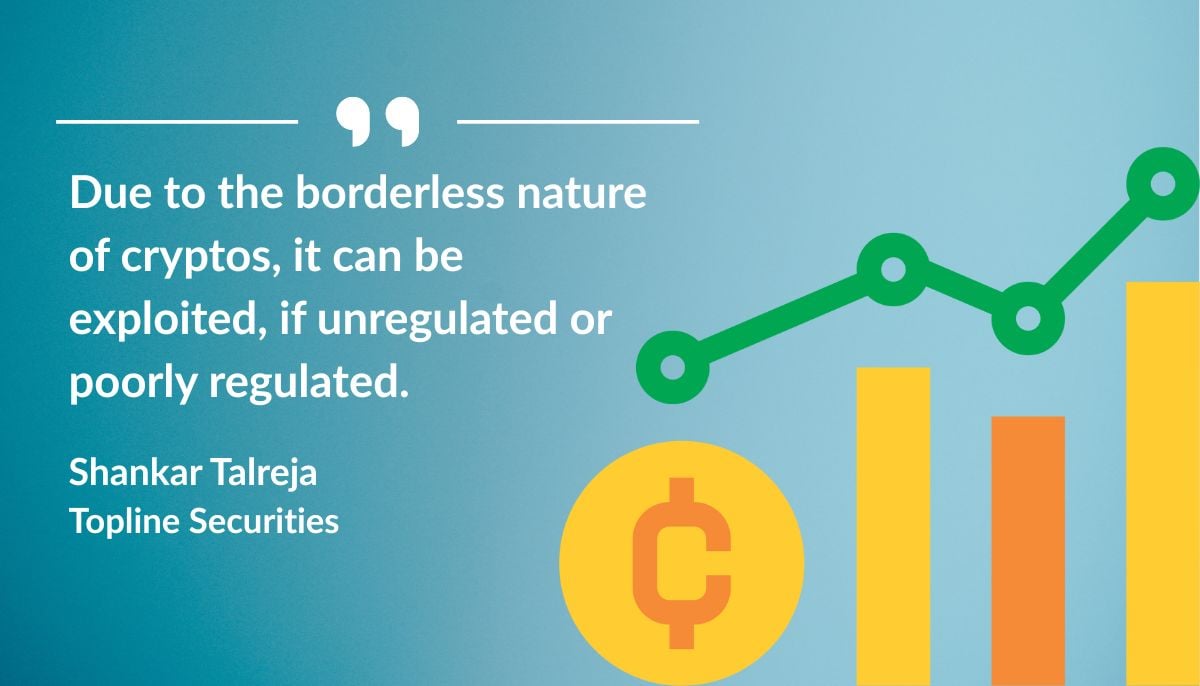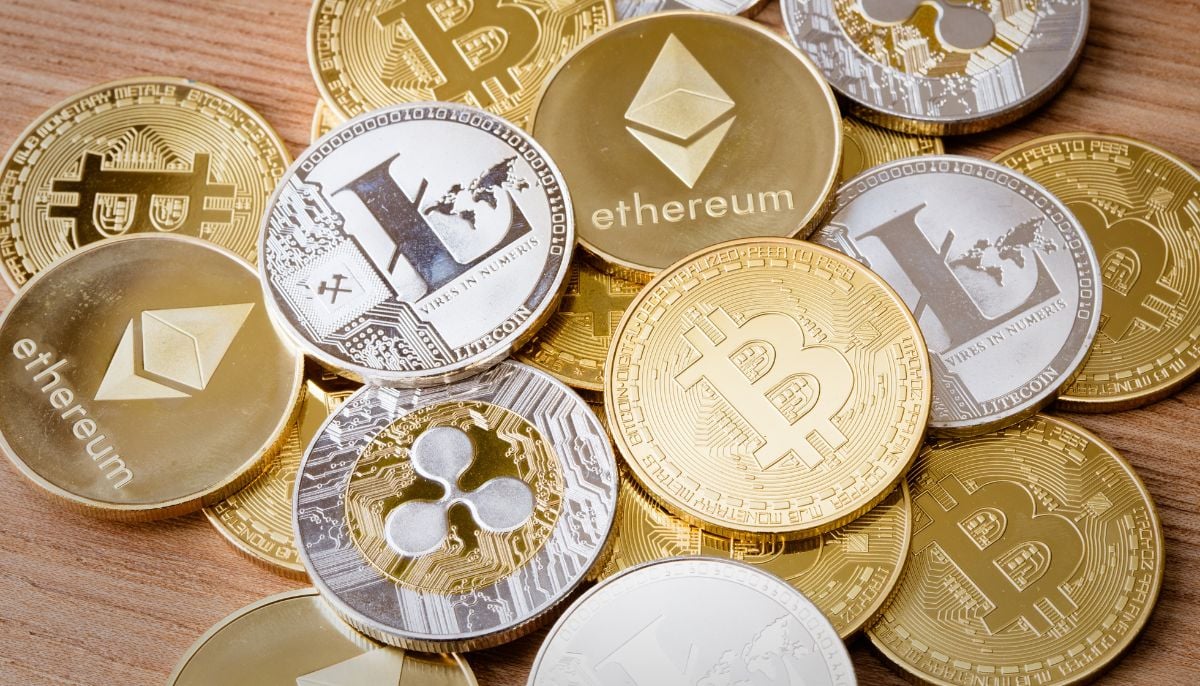Is Pakistan's crypto balloon flying too close to the sun?
Whether Pakistan soars or stalls in the digital economy hinges on ambition aligned with accountability and realism

The Pakistan Crypto Council (PCC) exudes rare confidence — a quality that has helped it soar to great heights in a short period. Established in March this year, the council is led by State Minister for Crypto and Special Assistant to the Prime Minister on Blockchain and Crypto, Bilal bin Saqib, who also serves as its chief executive officer (CEO).
Last month, at a high-level Bitcoin conference in the US, which was attended by US President Donald Trump’s sons as well, Saqib unveiled Pakistan’s first-ever Strategic Bitcoin Reserve (SBR).
But while the state minister held meetings with crypto leaders, policymakers back home raised questions over the pace at which the PCC was going. Lawmakers also expressed that cryptocurrencies were banned nationwide. This flawed dichotomy, according to lawmakers, could impact Pakistan’s position in the global crypto race.

The CEO of antematter[dot]io, a technology engineering firm building solutions using Web3 and artificial intelligence (AI), Soban Raza adds his perspective: “At a fundamental level and speaking rather theoretically, decentralised assets and cryptocurrencies are great. But as with all good ideas, implementation of the idea and the idea itself are two wholly different things.”
Commenting on the visible lack of coordination among different departments, Raza says, “First, the PCC unveiled the strategic Reserve and shortly after the government unequivocally claimed that crypto is still illegal in Pakistan.
“This sends mixed signals to the international market and erodes investor confidence.
“We are still not sure where the government as a whole stands on crypto, bitcoin and digital assets.”
The discussion, however, led the State Bank of Pakistan (SBP) to clarify that back in 2018, when it advised its regulated entities to abstain from dealing in virtual assets (VAs), it meant as a precaution in a financial environment with no legal and regulatory framework for such assets — not because the assets themselves were illegal.
Having had some clarity regarding the legality of cryptocurrencies, the country has begun drafting a regulatory framework for digital and virtual assets; the latest meeting of the PCC and other relevant stakeholders, including officials from the Securities and Exchange Commission of Pakistan (SECP); SBP; and law and IT ministers, was held on June 5.
As Pakistan moves towards an all-eyes-on-crypto situation, experts have come forward with both suggestions and cautions.

Former adviser to the Ministry of Finance Dr Khaqan Najeeb says, “The country must establish a clear, forward-looking vision for virtual assets, positioning itself as a progressive yet cautious jurisdiction.
“This requires combining strong AML [anti-money laundering]/CFT [countering the financing of terrorism] compliance with innovative regulatory policies and a transparent tax framework to support sustainable growth in the digital asset sector.
“Licensing and oversight should be implemented for cryptocurrency exchanges, custodians, wallet providers and decentralised finance platforms to ensure financial integrity.”
According to official sources, Pakistan currently hosts approximately 40 million crypto wallets, placing it among the most active digital asset markets globally.
“Globally, countries are taking diverse approaches to virtual assets, Khaqan adds.
“While China maintains a strict ban, Singapore, Switzerland, and the UAE are creating supportive ecosystems through clear guidelines and regulatory sandboxes.
“The EU is standardising rules across member states.
“Japan and Australia classify cryptocurrencies as legal property and are working on comprehensive frameworks, including AML/CFT obligations and taxation policies.”
“With a young, tech-savvy population, Pakistan should invest in Web 3.0 education, AI and skill development to empower youth and foster innovation,” says Khaqan.
Flight of Icarus?
Concerns over the country’s crypto goals emerged mostly after the government told the National Assembly Standing Committee that dealing in cryptocurrencies was still banned across the country.
The government’s metaphorical ride between crypto as a legal currency and a blanket ban on virtual and digital assets have made experts sceptic of the government’s ability to regulate the currency.
Director of research at brokerage firm Topline Securities Shankar Talreja thinks that regulating crypto is quite challenging … as these regulations should comply with framework/guidelines of the FATF and IMF.
“Due to the borderless nature of cryptos, it can be exploited, if unregulated or poorly regulated.”
“Pakistan is also marketing itself as a potential hub for energy-intensive digital industries, including Bitcoin mining and AI data centres.
“The country recently allocated 2000 megawatts (MW) of electricity to support Bitcoin mining and AI data centres.
“But this bold move has drawn criticism from experts who think that the crypto council could be flying too close to the sun.”
They argue that given the country’s dependence on expensive energy sources like LNG and coal, Bitcoin mining is financially unsustainable without government subsidies. This leads the country to a Catch-22 situation.

If the government’s handouts are approved, it could raise electricity costs for ordinary citizens and small businesses. With electricity rates already unsustainable, the system is becoming increasingly unviable. Power shortages are looming, and ordinary citizens are bracing for yet another round of tariff hikes. And if it does not, the country will have to face high operational costs.
An energy expert, who spoke on condition of anonymity, explains: The current spare power generation uses imported liquefied natural gas (LNG) at a cost of approximately 10 cents per kilowatt-hour (kwh).
This, he says, is significantly higher than the operating cost of under 1 cent per kwh for geothermal plants employed in Bitcoin mining across numerous countries. “Is it economically viable to mine Bitcoin [in Pakistan]?”
But the current crisis goes far beyond energy, according to the expert. Pakistan lacks the consistency needed for long-term projects, according to him.
“Several projects under the China-Pakistan Economic Corridor (CPEC), once hailed as a transformative initiative, have been abandoned, he added.
“This is not just mismanagement; it is a pattern,” he adds.
Experts have also pointed out internal disagreements over the country’s resources. “Minerals, many of them critical and valuable, have been auctioned off at throwaway prices, often acquired by politically connected elites,” the energy expert says. Consider the growing evidence of economic repression in regions like Khyber Pakhtunkhwa and Balochistan, where local populations are often the first to bear the brunt of extractive policies and neglect. “How can Pakistan move forward?” he said.
The path forward
Najeeb thinks that Pakistan’s surplus electricity presents an opportunity for private sector-led Bitcoin mining and blockchain data centres.
“A commercially viable framework for marginal cost electricity supply can be developed, considering current energy costs and infrastructure challenges.”
He also advises setting up a dedicated authority that could be entrusted with “licensing, oversight and promoting tokenisation of national assets and government debt, unlocking new avenues for digital finance and exports.
“While new technologies carry inherent risks and are not cure-alls, Pakistan must build institutional capacity, enforce compliance, and educate consumers to mitigate fraud and systemic risks, thereby harnessing blockchain and AI’s full economic potential.”
“Cryptocurrency gains must be treated as capital gains tax assets, providing clarity and fairness that will encourage compliance and help formalise the large informal crypto market. As one of the top recipients of remittances — over $35 billion annually — Pakistan can benefit greatly by adopting blockchain-based remittance solutions, reducing transfer fees and delays, and directly aiding millions of families while boosting economic stability,” Khaqan adds.

Per Naeem Ilyas Khanani, CEO of Magna Engineering Pvt Ltd, the Independent System and Market Operator (ISMO) could bring in an era of “transparency, competition and efficiency”.
“[In 2024, the Cabinet Committee on Energy (CCoE) approved the formation of the ISMO].
In his case study on how the ISMO can transform Pakistan’s power sector, Khanani explains that the ISMO’s efficient market mechanisms can facilitate the optimised allocation and management of [the country’s surplus power], making such operations more viable and cost-effective”.
He adds that stable, competitively priced energy and a compliant digital asset ecosystem create an attractive environment for global AI and crypto mining companies to invest in and establish operations in Pakistan.
“This ecosystem, supported by key regulatory bodies such as the SECP, SBP, PCC, DAAP, and blockchain Layer 1 technologies like NextGen, directly contributes to digital foreign direct investment (DFDI).
“AI and crypto mining can be viewed as a form of exporting compute power”, Khanani adds.
By providing the necessary energy infrastructure and regulatory clarity, Pakistan has the opportunity to become a key player in these global digital industries, generating substantial export revenue.
According to Khanani, the compliant regulatory framework facilitated by the ISMO, particularly in areas like renewable energy certificates (RECs) and carbon credits, paves the way for the creation and export of new digital asset classes, further diversifying Pakistan’s export portfolio.
Whether Pakistan soars or stalls in the digital economy will depend not just on ambition — but on alignment, accountability, and a clear-eyed view of its limits.
Aimen Siddiqui is the head of business desk at The News International.
Header and thumbnail image via Canva




